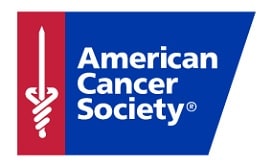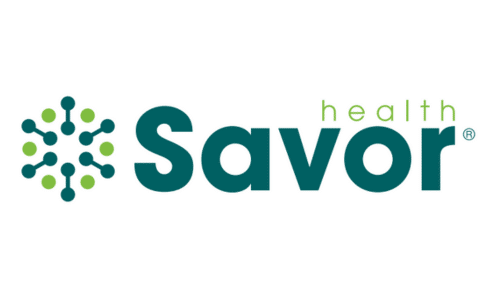Nausea and vomiting at a glance
Gastrointestinal upsets such as nausea and vomiting can be common during some cancer treatments. Cancers in certain areas of the body can also cause nausea and vomiting. Finding relief can not only greatly enhance your quality of life, but may help you maintain your body weight and even complete your treatment. Several lifestyle practices and complementary therapies can help you manage nausea and vomiting.
Nausea and vomiting: an overview
What are nausea and vomiting?
Nausea is a feeling of queasiness and the need to retch or vomit. Vomiting can lead to dehydration, and so drinking small amounts of water frequently is recommended.1NCCN Guidelines for Patients: Nausea and Vomiting. National Comprehensive Cancer Network. 2022. Viewed September 12, 2024.
Nausea and vomiting and cancer
What can cause or trigger nausea and vomiting with cancer?
You may experience nausea and vomiting at many different times during your cancer experience. Some types of chemotherapy—such as cisplatin, carboplatin, or doxorubicin—can cause immediate and/or delayed nausea or vomiting. It is not uncommon to experience nausea a day or more after treatment. Radiation therapy to certain parts of the body may cause nausea and/or vomiting during treatment or immediately after. Some drugs to ease other cancer symptoms, such as opioids, can also cause nausea and vomiting.2Mayo Clinic staff. Nausea and vomiting. Mayo Clinic. December 7, 2023. Viewed September 10, 2024.
Cancer in some parts of the body, such as in the pancreas, brain, or abdomen, may also cause nausea and vomiting. Cancer can also cause imbalances, such as too much calcium in the blood, that lead to nausea and vomiting. Anticipating the risk of nausea and vomiting so they can be prevented or minimized, as well as identifying the cause, are important to identify the best treatment.
Anticipatory nausea and vomiting
Anticipatory nausea and vomiting (ANV) occurs when you feel nauseated or vomit before receiving chemotherapy. This may be triggered by reminders of previous treatments, such as the sight of the clinic or the smell of medication. It’s a learned response that can develop after experiencing nausea during prior chemotherapy sessions. You should inform your doctor if you begin to feel queasy or anxious before treatments, as early intervention can help manage symptoms. You should also mention any specific triggers and ask about medications or therapies, like relaxation techniques, systematic desensitization,3Patel P, Robinson PD et al. Prevention and treatment of anticipatory chemotherapy-induced nausea and vomiting in pediatric cancer patients and hematopoietic stem cell recipients: clinical practice guideline update. Pediatric Blood & Cancer. 2021 May;68(5):e28947; Morrow GR, Asbury R et al. Comparing the effectiveness of behavioral treatment for chemotherapy-induced nausea and vomiting when administered by oncologists, oncology nurses, and clinical psychologists. Health Psychology. 1992;11(4):250-6; Morrow GR. Effect of the cognitive hierarchy in the systematic desensitization treatment of anticipatory nausea in cancer patients: a component comparison with relaxation only, counseling, and no treatment. Cognitive Therapy and Research. 1986;10:421-446. or aromatherapy that might reduce ANV. A key way to prevent ANV from developing is to develop a medical plan to prevent or minimize nausea and vomiting. Taking antiemetics as prescribed is also important.
What else can cause or contribute to nausea and vomiting?
Aside from the cancer-related causes above, nausea and vomiting can have many different origins. Common causes relevant to people with cancer:
- General anesthesia
- Intestinal obstruction
- Migraines
- Infections
- Anxiety
- Pain
- Dehydration
- Imbalances of hormones or electrolytes such as high calcium or low sodium in the blood
What are signs and symptoms of nausea and vomiting?
When someone has nausea, they feel sick to their stomach and may have the urge to throw up. Continued nausea and vomiting can also lead to other symptoms (listed below), specifically dehydration if the ability to take in fluids and food is impaired. Be sure to let your doctor know if you are unable to keep fluids down and are vomiting for more than 24 hours.4Understanding Nausea and Vomiting. American Cancer Society. June 26, 2024. Viewed September 10, 2024.
- The urge to vomit
- Vomiting
- Queasiness
- Pain or bloating in the abdomen
- Headache
- Fatigue
- Lack of appetite
- Weight loss
- Dizziness
Top evidence-based practices and therapies for managing nausea and vomiting
We present approaches to reducing nausea and vomiting backed by modestsignificant effects in at least three small but well-designed randomized controlled trials (RCTs), or one or more well-designed, mid-sized clinical studies of reasonably good quality (RCTs or observational studies), or several small studies aggregated into a meta-analysis (this is the CancerChoices definition; other researchers and studies may define this differently), goodsignificant effects in one large or several mid-sized and well-designed clinical studies (randomized controlled trials (RCTs) with an appropriate placebo or other strong comparison control or observational studies that control for confounds) (this is the CancerChoices definition; other researchers and studies may define this differently), or strongconsistent, significant effects in several large (or at least one very large) well designed clinical studies or at least two meta-analyses of clinical studies of moderate or better quality (or one large meta-analysis) finding similar results (this is the CancerChoices definition; other researchers and studies may define this differently) evidence of effectiveness from clinical guidelines and our therapy reviews. If your nausea and vomiting are caused by medical conditions, treating the underlying condition may be needed to relieve your symptoms.
Conventional therapies
Several very effective antinausea (antiemetic) drugs and other treatments are available. Ask your oncologist for conventional treatments if you are experiencing nausea and/or vomiting.
If you are prescribed antiemetic and anti-anxiety medication before and after cancer treatment, taking it as prescribed is important for best effect. Tell your doctor of any of these situations:
- You miss a dose
- You can’t keep the medication down
- It isn’t working
- It causes unpleasant or serious side effects
Some chemotherapy drugs can cause delayed nausea and vomiting up to 48 hours after treatment. Antiemetic regimens can successfully control this situation.
Complementary therapies
Supplements and natural products
- Cannabis (marijuana) is available as plant buds for smoking or eating, and cannabinoids are components of cannabis that are available as extracts. Short-term use during chemotherapy can lead to less nausea and vomiting, including when used in addition to prescribed antiemetic medication.5Hepp N, Pole L. How can cannabis and cannabinoids help you? What the research says. CancerChoices. October 7, 2024. See Cannabis and Cannabinoids: affordability and access › Safety concerns: Long-term frequent use of cannabis high in THC, such as for cancer-related pain, can lead to an increase in nausea and vomiting, including severe nausea and vomiting. See Cannabis and Cannabinoids: safety and precautions ›
- Ginger is a food that is also available as a supplement. People with cancer treated with oral ginger at the time of chemotherapy reported less incidence or severity of nausea and vomiting in several studies.6Wazqar DY, Thabet HA, Safwat AM. A quasi-experimental study of the effect of ginger tea on preventing nausea and vomiting in patients with gynecological cancers receiving cisplatin-based regimens. Cancer Nursing. 2021 Nov-Dec 01;44(6):E513-E519; Essawy MA, Abohadida RM, Abd-Elkader WM, Fathy HM, Hassab HM. Comparing the effect of acupressure and ginger on chemotherapy gastrointestinal side-effects in children with leukemia. Complementary Therapies in Medicine. 2021 Aug;60:102730; Ryan JL, Heckler CE et al. Ginger (Zingiber officinale) reduces acute chemotherapy-induced nausea: a URCC CCOP study of 576 patients. Supportive Care in Cancer. 2012 Jul;20(7):1479-89; Arslan M, Ozdemir L. Oral intake of ginger for chemotherapy-induced nausea and vomiting among women with breast cancer. Clinical Journal of Oncology Nursing. 2015 Oct;19(5):E92-7; Panahi Y, Saadat A et al. Effect of ginger on acute and delayed chemotherapy-induced nausea and vomiting: a pilot, randomized, open-label clinical trial. Integrative Cancer Therapies. 2012 Sep;11(3):204-11. Practice guidelines recommend ginger for managing nausea and vomiting during chemotherapy.7Greenlee H, DuPont-Reyes MJ et al. Clinical practice guidelines on the evidence-based use of integrative therapies during and after breast cancer treatment. CA: A Cancer Journal for Clinicians. 2017 May 6;67(3):194-232 (this set of guidelines has been endorsed by the American Society of Clinical Oncology (ASCO): Lyman GH, Greenlee H et al. Integrative therapies during and after breast cancer treatment: ASCO endorsement of the SIO clinical practice guideline. Journal of Clinical Oncology. 2018 Sep 1;36(25):2647-2655). See a recipe for ginger tea › from Essentia Health.
- Intravenous vitamin C achieves much higher blood levels and enhance its antioxidant and anti-inflammatory effects compared to oral vitamin C. People with breast cancer treated with IV vitamin C show less nausea and perhaps less vomiting during cancer treatment.8Hepp N, Pole L. How can intravenous vitamin C help you? What the research says. CancerChoices. April 12, 2024. See Vitamin C: Intravenous Use: affordability and access ›
- Mistletoe is a plant extract formulated for injections or infusions. People with cancer treated with mistletoe reported less nausea and vomiting across many studies.9Hepp N. How can mistletoe help you? What the research says. CancerChoices. October 22, 2024. See Mistletoe: affordability and access ›
- Peppermint oil is an extract of the peppermint plant that can be inhaled, brewed as a tea beverage, or mixed into water. People inhaling or drinking peppermint oil experience less nausea and vomiting during chemotherapy.10Badr EA, Abdalla HM, Gaafer YA, Kamel MY. Effect of peppermint inhalation versus Swedish massage on chemotherapy induced-nausea and vomiting in children with leukemia: multi-arm randomised trial design. Journal of Pediatric Nursing. 2024 Jul-Aug;77:140-151; Ahn JH, Kim M, Kim RW. Effects of aromatherapy on nausea and vomiting in patients with cancer: a systematic review and meta-analysis of randomized controlled trials. Complementary Therapies in Clinical Practice. 2024 May;55:101838; Şancı Y, Yıldız S, Ayçiçek A, Möhür N. Effect of peppermint-lemon aromatherapy on nausea-vomiting and quality of life in pediatric patients with leukemia: a randomized controlled trial. Journal of Pediatric Nursing. 2023 Sep-Oct;72:e217-e227; Efe Ertürk N, Taşcı S. The effects of peppermint oil on nausea, vomiting and retching in cancer patients undergoing chemotherapy: an open label quasi-randomized controlled pilot study. Complementary Therapies in Medicine. 2021 Jan;56:102587; Jafarimanesh H, Akbari M, Hoseinian R, Zarei M, Harorani M. The effect of peppermint (Mentha piperita) extract on the severity of nausea, vomiting and anorexia in patients with breast cancer undergoing chemotherapy: a randomized controlled trial. Integrative Cancer Therapies. 2020 Jan-Dec;19:1534735420967084. Find practitioners or clinics providing aromatherapy › from Yes to Life.
Other complementary therapies
- Acupressure involves applying pressure to specific places on your body. Acupressure reduces nausea and vomiting during chemotherapy, including among children, in several studies.11Hepp N. How can acupressure help you? What the research says. CancerChoices. October 15, 2024. Acupressure is recommended to treat chemotherapy-induced nausea and vomiting in clinical practice guidelines.12Greenlee H, DuPont-Reyes MJ et al. Clinical practice guidelines on the evidence-based use of integrative therapies during and after breast cancer treatment. CA: A Cancer Journal for Clinicians. 2017 May 6;67(3):194-232 (this set of guidelines has been endorsed by the American Society of Clinical Oncology (ASCO): Lyman GH, Greenlee H et al. Integrative therapies during and after breast cancer treatment: ASCO endorsement of the SIO clinical practice guideline. Journal of Clinical Oncology. 2018 Sep 1;36(25):2647-2655). See Acupressure: affordability and access ›
- Acupuncture is a practice of inserting fine needles into the body at specific points. People with cancer treated with acupuncture experience less nausea and vomiting after surgery or during chemotherapy, but not during hormone therapy.13Hepp N. How can acupuncture help you? What the research says. CancerChoices. August 28, 2024. Clinical practice guidelines recommend acupuncture for managing nausea and vomiting among people with cancer.14Greenlee H, DuPont-Reyes MJ et al. Clinical practice guidelines on the evidence-based use of integrative therapies during and after breast cancer treatment. CA: A Cancer Journal for Clinicians. 2017 May 6;67(3):194-232 (this set of guidelines has been endorsed by the American Society of Clinical Oncology (ASCO): Lyman GH, Greenlee H et al. Integrative therapies during and after breast cancer treatment: ASCO endorsement of the SIO clinical practice guideline. Journal of Clinical Oncology. 2018 Sep 1;36(25):2647-2655; Deng GE, Frenkel M et al. Evidence-based clinical practice guidelines for integrative oncology: complementary therapies and botanicals. Journal of the Society for Integrative Oncology. 2009 Summer;7(3):85-120; Deng GE, Rausch SM et al. Complementary therapies and integrative medicine in lung cancer: diagnosis and management of lung cancer, 3rd ed: American College of Chest Physicians evidence-based clinical practice guidelines. Chest. 2013 May;143(5 Suppl):e420S-e436S. See Acupuncture: affordability and access ›
- Electroacupuncture involves inserting very thin needles at specific points on the body and passing a mild electric current between them. People with cancer treated with electroacupuncture have experienced less nausea and vomiting in several studies.15Hepp N, Pole L. How can electroacupuncture help you? What the research says. CancerChoices. August 28, 2024. Clinical practice guidelines recommend electroacupuncture for managing nausea and vomiting among people with cancer, sometimes in addition to antiemetic medication.16Greenlee H, DuPont-Reyes MJ et al. Clinical practice guidelines on the evidence-based use of integrative therapies during and after breast cancer treatment. CA: A Cancer Journal for Clinicians. 2017 May 6;67(3):194-232 (this set of guidelines has been endorsed by the American Society of Clinical Oncology (ASCO): Lyman GH, Greenlee H et al. Integrative therapies during and after breast cancer treatment: ASCO endorsement of the SIO clinical practice guideline. Journal of Clinical Oncology. 2018 Sep 1;36(25):2647-2655); Deng GE, Rausch SM et al. Complementary therapies and integrative medicine in lung cancer: diagnosis and management of lung cancer, 3rd ed: American College of Chest Physicians evidence-based clinical practice guidelines. Chest. 2013 May;143(5 Suppl):e420S-e436S. See Electroacupuncture: affordability and access ›
- Hypnosis or hypnotherapy is a technique to induce a state of greater awareness, focused attention, and deep relaxation to manage symptoms or help a person gain control over behaviors they’d like to change. People with cancer (mostly children) treated with hypnosis experience less chemotherapy-induced nausea and vomiting.17Richardson J, Smith JE et al. Hypnosis for nausea and vomiting in cancer chemotherapy: a systematic review of the research evidence. European Journal of Cancer Care. 2006 Dec. One practice guideline conditionally recommends hypnosis for prevention of anticipatory chemotherapy-induced nausea and vomiting among cooperative children with cancer.18Patel P, Robinson PD et al. Prevention and treatment of anticipatory chemotherapy-induced nausea and vomiting in pediatric cancer patients and hematopoietic stem cell recipients: clinical practice guideline update. Pediatric Blood & Cancer. 2021 May;68(5):e28947. Learn more about hypnotherapy for cancer care ›
- Mind-body modalities include practices such as meditation ›, psychotherapy, and mindful movement therapies such as yoga or qigong, plus others. These practices are recommended as part of a multidisciplinary approach for managing nausea and vomiting among people with lung cancer.19Deng GE, Rausch SM et al. Complementary therapies and integrative medicine in lung cancer: diagnosis and management of lung cancer, 3rd ed: American College of Chest Physicians evidence-based clinical practice guidelines. Chest. 2013 May;143(5 Suppl):e420S-e436S. See also hypnosis, relaxation techniques, and yoga within this list.
- Moxibustion involves burning an herb to apply heat close to the skin at specific points. People with cancer treated with moxibustion experience less nausea and vomiting during or after conventional cancer treatments.20Hepp N, Pole L. How can moxibustion help you? What the research says. CancerChoices. May 28, 2024. Clinical practice guidelines recommend moxibustion either alone or with acupuncture for managing nausea and vomiting during chemotherapy.21Deng GE, Rausch SM et al. Complementary therapies and integrative medicine in lung cancer: diagnosis and management of lung cancer, 3rd ed: American College of Chest Physicians evidence-based clinical practice guidelines. Chest. 2013 May;143(5 Suppl):e420S-e436S; Wong CHL, Wu IXY et al. Development of evidence-based Chinese Medicine Clinical Service recommendations for cancer palliative care using Delphi Approach based on the evidence to decision framework. Integrative Cancer Therapies. 2020 Jan-Dec;19:1534735420940418; Ling CQ, Fan J et al; Chinese Integrative Therapy of Primary Liver Cancer Working Group. Clinical practice guidelines for the treatment of primary liver cancer with integrative traditional Chinese and Western medicine. Journal of Integrative Medicine. 2018 Jul;16(4):236-248. See Moxibustion: affordability and access ›
- Music therapy involves the use of music in a therapeutic relationship. People listening to music have experienced lower incidence of anticipatory chemotherapy-induced nausea and vomiting and lower severity of delayed vomiting in several studies.22Wei TT, Tian X, Zhang FY, Qiang WM, Bai AL. Music interventions for chemotherapy-induced nausea and vomiting: a systematic review and meta-analysis. Supportive Care in Cancer. 2020 Sep;28(9):4031-4041. See How to Find a Music Therapist › from the American Music Therapy Association.
- Relaxation techniques, either alone or with guided imagery: Relaxation refocuses your attention on something calming and increases awareness of your body. Guided imagery uses your imagination to help you relax, relieve symptoms, and stimulate your body’s healing responses. People with cancer practicing relaxation techniques show less nausea and/or vomiting during chemotherapy.23Hepp N. How can relaxation techniques help you? What the research says. CancerChoices. May 29, 2024. Practice guidelines recommend relaxation techniques to manage nausea and vomiting during chemotherapy.24Greenlee H, DuPont-Reyes MJ et al. Clinical practice guidelines on the evidence-based use of integrative therapies during and after breast cancer treatment. CA: A Cancer Journal for Clinicians. 2017 May 6;67(3):194-232 (this set of guidelines has been endorsed by the American Society of Clinical Oncology (ASCO): Lyman GH, Greenlee H et al. Integrative therapies during and after breast cancer treatment: ASCO endorsement of the SIO clinical practice guideline. Journal of Clinical Oncology. 2018 Sep 1;36(25):2647-2655); Patel P, Robinson PD et al. Prevention and treatment of anticipatory chemotherapy-induced nausea and vomiting in pediatric cancer patients and hematopoietic stem cell recipients: clinical practice guideline update. Pediatric Blood & Cancer. 2021 May;68(5):e28947. See Relaxation Techniques: affordability and access › and Guided Imagery: affordability and access ›
- Therapeutic Touch™ directs energy through practitioners’ hands to rebalance your energy field. People with breast cancer treated with Therapeutic Touch™ during chemotherapy have experienced less nausea and vomiting in several studies.25Pole L, Hepp N. How can Therapeutic Touch® help you? What the research says. CancerChoices. October 21, 2024. See Therapeutic Touch: affordability and access ›
- Yoga is a mind-body practice that includes breath control, meditation, and physical postures. People with cancer practicing yoga have experienced less nausea and vomiting in several studies.26Hepp N, Pole L. How can yoga help you? What the research says. CancerChoices. August 28, 2024. See Yoga: affordability and access ›
Recommended against; avoid use
Glutamine is not recommended for improving nausea and vomiting during chemotherapy due to a lack of effect in two studies.27Greenlee H, DuPont-Reyes MJ et al. Clinical practice guidelines on the evidence-based use of integrative therapies during and after breast cancer treatment. CA: A Cancer Journal for Clinicians. 2017 May 6;67(3):194-232 (this set of guidelines has been endorsed by the American Society of Clinical Oncology (ASCO): Lyman GH, Greenlee H et al. Integrative therapies during and after breast cancer treatment: ASCO endorsement of the SIO clinical practice guideline. Journal of Clinical Oncology. 2018 Sep 1;36(25):2647-2655).
Helpful links

BRAT Diet › Includes an expanded list of foods for the customary BRAT (bananas, rice, apples, and toast) diet for people recovering from vomiting and/or diarrhea
Cookbooks with tips and recipes for those experiencing nausea and vomiting:
Information for health professionals
Clinical practice guidelines
Pediatric Oncology Group of Ontario makes recommendations for preventing and treating anticipatory chemotherapy-induced nausea and vomiting in pediatric cancer patients:28Patel P, Robinson PD et al. Prevention and treatment of anticipatory chemotherapy-induced nausea and vomiting in pediatric cancer patients and hematopoietic stem cell recipients: clinical practice guideline update. Pediatric Blood & Cancer. 2021 May;68(5):e28947.
- Optimize acute and delayed CINV control to minimize the risk of anticipatory CINV.
- Consider offering cooperative patients one or more of the following nonpharmacological interventions for secondary prevention of anticipatory CINV: hypnosis, systematic desensitization, or relaxation techniques.
- Consider using lorazepam for secondary prevention of anticipatory CINV.
- We suggest that ginger not be used routinely for secondary prevention of anticipatory CINV.
- Do not use clonidine for secondary prevention of anticipatory CINV.
Explore other handbooks on cancer side effects
References





